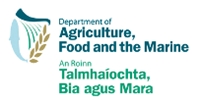
Outlining the main features of his Department’s Budget for 2014, the Minister for Agriculture, Food and the Marine, Simon Coveney, TD today announced funding of €1.203 billion to fund the full range of his Department’s activities in 2014.



Outlining the main features of his Department’s Budget for 2014, the Minister for Agriculture, Food and the Marine, Simon Coveney, TD today announced funding of €1.203 billion to fund the full range of his Department’s activities in 2014. The Minister said he is determined to build on the progress achieved in recent years in developing the agri food sector and, in particular, to further contribute to the future growth and prosperity that the sector can achieve for Ireland, expanding its revenue base through growth in export earnings.
In spite of the very difficult budgetary arithmetic, the Minister managed to identify a fund of €23 million to support a new Beef Genomics Scheme which will further progress the genetic quality of Irish beef and deliver world best practice in beef traceability.
Funding for 2014
The Minister said that the Exchequer contribution to the Vote of his Department will amount to some €1,203 million in 2014, which is comprised of some €1,019.2 million in current expenditure and €183.7 million capital expenditure. While this represents a modest fall in overall terms in 2014, reflecting the reality of macro level budgetary constraints, it is also worth noting that some agriculture schemes are coming to the end of their natural life and separately, the Department continues to reduce the administrative cost of delivering its programmes for farmers and the agri-food sector as part of its reform programme.
Key Priorities
This year’s Budget is consistent with last year’s Budget in terms of priorities
- Supporting Vulnerable Sectors and protecting the incomes of family farms
- Supporting small farm holdings in disadvantaged areas
- Taxation measures to restructure, modernise and promote growth in the agri-food and farming sector
- Providing support programmes in line with the targets of Food Harvest 2020, in particular job creation
- Supporting the future of the sector through new research and development funding and through investment in food safety and animal health and welfare controls
- A continued programme of reform within the Department and its Agencies aimed at continued improvement in service delivery and reducing costs.
Sector Overview
The agri-food and fishing industry is enjoying a period of strong success and all signs point to continuous growth for the sector. In 2012, food and drink exports exceeded €9 billion for the first time which means that over the last three years these exports have risen by 28%, or €2bn, in total. This trend is continuing; the latest CSO figures for food & beverage exports show a 7% rise in the first half of 2013 as compared to the same period in 2012.
“There is a parallel upturn in employment figures in the food and drink sector over the past two years. Forfás estimates that job numbers have grown by over 1,300 in 2012 and I believe that some element of this trend can be attributed to the work being done by the Government and the Food Harvest Implementation Committee to grow this, our most important indigenous sector”.
Supporting Vulnerable Sectors
In relation to supporting vulnerable sectors, Minister Coveney stated “maintaining the current level of payments under the Disadvantaged Areas Scheme is a key priority for which I have allocated €195 million in 2014 and I have also increased the Grassland Sheep Scheme to €15 million in 2014”.
Single Farm Payment
While direct funding of €1.21 billion representing the Single Farm Payment is not provided for in Exchequer voted expenditure for 2014, the associated administrative cost of implementing this important payment to Irish farmers is funded through the Vote. The first instalment of the Single farm payment is being paid to farmers from tomorrow.
Package of measures for the Beef sector
Building on existing measures in the beef sector Minister Coveney announced a Budget package worth €40 million for the beef sector, comprising €23m for a new Beef Genomics Scheme, when, taken together with the Beef Data Programme worth €10 million, will allow the equivalent of payments worth €60 per calf for some 32,000 herds covering up to 550,000 Suckler calves. In addition, the Minister has continued his commitment to the beef sector through the continuation of the €5 million Beef Technology Adoption Programme. Almost 5,500 farmers received an annual payment of €925 each under the 2012 Programme. Separately, €2 million is being provided to cover remaining payments under the Suckler Welfare Scheme.
“I am delighted that we are in a position to fund these measures, which together will result in investment of €40m in our beef sector next year. The suckler herd is the seed bed for a quality beef industry involving more than 100,000 farm families, employing almost 8,000 people in processing, sales and marketing, and driving exports valued at approximately €1.8 billion per annum. Harnessing technology in a way that improves efficiency and ultimately profitability at farm level is key, and I am convinced that the combination of measures announced today can make a major contribution to the expansion of beef output and greater market penetration”.
Taxation Measures – restructuring and modernising the agri-food sector
Minister Coveney welcomed the retention of key existing tax reliefs for agriculture and the food industry, and the introduction of new incentives, which will contribute to the implementation of the Food Harvest 2020 strategy. The Minister was pleased to have secured agreement to the following changes to agri-taxation measures:
Adjustment to Capital Gains Tax Retirement Relief
Until now, retirement relief from Capital Gains Tax was only available where a person had farmed the land for the previous ten years, except in the case of transfer to a child, in which case a long term lease was permitted prior to transfer. This new measure extends CGT retirement relief to include farmers who lease their land out on a long term basis (a minimum lease of five years) in the period prior to retirement, and intend transferring their land to a person other than a child. The main purpose of the measure is to encourage older farmers who have no children to lease out their farmland over the long term to younger farmers.
This change builds on a number of measures introduced in the last two Budgets to improve land access for younger farmers; including the reduction in stamp duty rates; improved incentives for long-term leasing and the restructuring relief from CGT introduced last year in order to address farm fragmentation.
VAT – Increase in farmers’ flat rate addition from 4.8% to 5%
The farmer’s flat-rate addition is being increased from 4.8% to 5% with effect from 1 January 2014. The flat-rate scheme compensates unregistered farmers for VAT incurred on their farming inputs, and is reviewed annually in accordance with the EU VAT Directive. This is a very positive development as it puts money back into farmer’s pocket.
In addition to the new measures outlined, Minister Coveney reminded farmers that he had secured the retention of the key agricultural relief from CAT and retirement relief from CGT. “The retention of these reliefs reflects the Government’s commitment to generational change in Irish agriculture”, the Minister stated. Taken together with the existing 100% relief available for young farmers in relation to stamp duty and stock relief, this means that almost all family farms can be transferred to young trained farmers with no tax liability arising.
The 100% reliefs for young trained farmers on stock relief and stamp duty relief have been maintained, and three new courses have been added to the list of qualifying courses for these reliefs.
Review of Farmers Taxation
“I welcome the announcement by the Minister for Finance that there will be an independent cost benefit analysis of existing tax reliefs in the agriculture sector. The objective of this review is to redirect the existing level of tax expenditure towards activities of maximum benefit to the sector and the economy” said Minister Coveney.
Measures which will benefit the food industry
The new CGT relief for entrepreneurs will be of benefit to start-up food businesses. This measure will complement ‘Food Works’, the inter-agency programme which was developed in line with Food Harvest 2020 specifically to target and accelerate the development of a new generation of High Potential Start Up food companies.
The extension of the 9% VAT rate for the tourism and hospitality sectors will greatly benefit rural tourism and food hospitality enterprises.
Other announcements in the Budget which will benefit existing food companies and encourage food and on-farm diversification start-ups include:
- A start your own business employment activation measure;
- Improvements in the R&D tax credit;
Other taxation reliefs are being maintained.
Capital Programme
Minister Coveney announced a strong commitment to supporting a capital programme across the agri-food, fisheries and forestry sectors again in 2014. In the Marine sector he has provided an increased capital allocation of €10 million to maintain the infrastructure at the Departments’ fishery harbour centres and local authority fishery harbours which makes a valuable contribution to Ireland’s marine sector. The capital allocation to the Marine Institute is being increased to €10 million to cover the cost of its ongoing research programme as well as upgrading its research vessels while capital funding to BIM will be increased to €6.5 million to assist in the implementation of the revised Common Fisheries Policy.
Significant capital funds have been allocated again in 2014 to the Forestry sector, amounting to some €101 million. The allocation will be predominantly allocated to meeting the annual commitment to forestry premiums but will also allow the funding of some7,000 hectares of new planting.
A provision of €4.2 million has been made for the Horticulture sector.
The Minister has continued to provide capital funds in support of on-farm modernisation, most specifically in 2014 in favour of the investment requirements needed to support the dairy sector through its expansion plans ahead of the removal of milk quotas in 2015. The Minister said “the ending of quotas provided the best ever opportunity for dairy farmers to rapidly increase output volumes and enhance the earning potential of the sector. As the final year ahead of quota abolition progresses, I expect to see an increasing level of investment in farm level infrastructure in line with investment already commenced at processing level”.
Public Sector Reform Programme
The Minister said he was committed to a continuation of an active programme of reducing the cost of running the Department and State Agencies, which has fallen by over €100 million since 2008. Enormous reform has taken place in recent years as the Department’s staffing level has fallen by some 1,600 since 2005 (from 4,800 to 3,200), a reduction of 33%. Since 2010 there has been a 22% reduction in the staff of the non- Commercial State Bodies, down to 1,463 from 1,865 at the beginning of 2010. Total Department spend on the NCSAs has fallen from €247 m in 2008 to an estimated €190 m in 2014, a reduction of 24%. “The salary cost of running my Department and the State Bodies will be some €8.5 million less in 2014 and I intend to continue to drive a change management programme across the Department and its Agencies while ensuring the proper resourcing of front line services, particularly those directly responsible for food safety, animal welfare and programme delivery”.
Conclusion
Minister Coveney concluded by saying that “the outlook for the agri-food sector remains very bright and the sector will continue to contribute strongly to national economic recovery. There is a new awareness of the vital economic importance of the sector and a strong recognition that the sector has the fundamental building blocks in place to reach the demanding targets it has set itself in Food Harvest 2020, a blueprint that will contribute hugely to the growth in food and drink exports and to national prosperity. I am confident that the measures introduced in Budget 2014, in a very challenging fiscal environment, will help us to continue on this path towards national recovery”.







